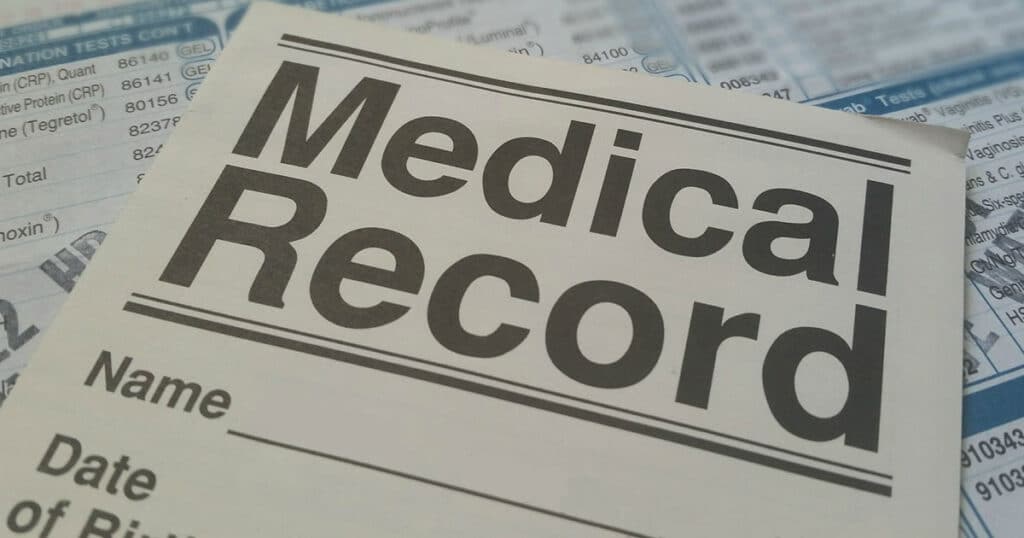Can Herniated Discs Qualify for SSDI Benefits?
Home » Applying for SSDI » Medical Conditions, Listed Impairments & SSDI » Can Herniated Discs Qualify for SSDI Benefits?
Key Takeaways
A herniated disc, also known as a “ruptured disc” or “slipped disc,” is a type of spinal injury that can be quite painful indeed, and can also disrupt the functions of other parts of your body.
In between each vertebra – the bones that make up your spine – sits a spinal disc, whose job is to help keep the bones together and also to act as a cushion between them. This disc has a rugged, tough exterior, called the “annulus fibrosus,” and a soft, gel-like interior, called the “nucleus pulposus.”
A herniated disc occurs when a spinal disc experiences damage to that tougher exterior of the disc (the annulus fibrosus) and the soft interior part of the disc (the nucleus pulposus) pushes out through the tear in the annulus.
This type of damage to a disc results in intense pain and disrupts the functions of other areas in the back, arms, and legs. Most people experience disc herniation due to the natural progression of disc deterioration as one ages, although it can also be caused by injury or traumatic event.
If you work in a physically demanding job, are overweight, or simply have certain genes, you could be more prone to herniated discs. Some people will not realize they have a herniated disc; others might experience multiple symptoms to indicate something is not right. And, keep in mind that while herniated discs are more common in older individuals, anyone at any age can experience a herniated disc.
Herniated Discs Symptoms and Treatments
The symptoms of a herniated disc may appear differently in each person. The majority of herniated discs will occur in the lower back; however, it is also possible to have one in your neck (cervical spine) or the middle of your back (thoracic spine).
If you feel leg pain, arm pain, buttock pain, tingling or numbness in the back or limbs, or weak muscles, you may have a herniated disc that is pressing upon your nerve roots or spinal cord. In the most severe cases, a person can experience loss of bowel or bladder control, weakness or numbness in the back, or difficulty moving their legs and walking.
Treatment for a herniated disc will vary based on the severity of the deterioration. In some instances, simply using pain medication ordered by your doctor, and avoiding painful and disruptive positions may help to manage the problem. However, in many cases, you may require disc injections, physical therapy, and/or surgery. After a herniated disc, many doctors will recommend taking preventative measures to prevent another herniated disc in the future, such as exercise appropriate for your specific condition, maintaining a healthy weight, and avoiding certain levels of exertion or activities.
Does a Herniated Disc Qualify Me for Disability Benefits?
Herniated discs are discussed in the Social Security Administration’s “Blue Book” listing of
disabling conditions, in Section 1 (Musculoskeletal System) under paragraph 1.04 (Disorders of the spine) where herniated discs are referred to as herniated nucleus pulposus (“HNP”).
Many people are disabled for some period of time because of herniated discs.
If you do have a more severe case that lasts, or is predicted to last, at least a year by a medical professional, you may be eligible for benefits.
The Social Security Administration provides a set of criteria that an applicant needs to demonstrate (with medical records) in order to “meet or equal” the listing for Herniated Discs. However, you don’t always need to meet or equal the listing in order to qualify.
At the end of the day, what the SSA generally cares about most is whether or not your Multiple Chemical Sensitivity meets certain requirements, including:
- That it rises to the level of a “severe impairment”, meaning it impacts your ability to do work;
- That it, combined with any other impairments you may have, prevent you from sustaining work;
- That it has affected you, or is expected to affect you, for at least one year (or to result in death).
If that is the case, then you may very well qualify for monthly disability benefits.
Next Steps
If you or a loved one have Herniated Disc(s) and are considering a claim for disability benefits, we recommend you read our articles about the process of applying for SSDI and the way the Social Security Administration uses their Sequential Evaluation Process to determine disability.
This article is presented for general information purposes only. Nothing in this article should be taken as medical advice. Medical decisions (including whether to start, stop, or modify any treatment plan) are extremely important and should always be made with the advice and counsel of a qualified medical professional.

Linda Cosme formerly served as a Member of the Appeals Council (AC) for the Social Security Administration (SSA), and Program Expert for the Social Security Administration and Disability Quality Branch (DQB). Ms. Cosme also served as a Quality Assurance (QA) Reviewer, Initial Disability Examiner, Reconsideration Disability Examiner, and Continuing Disability Examiner (CDR) for the Disability Determination Services (DDS). She is admitted to practice law in Arizona, Georgia, and the United States Ninth Circuit Court of Appeals.
It is easy to get started.
It is easy to get started. No upfront costs – You only pay if we win!
Oops! We could not locate your form.









